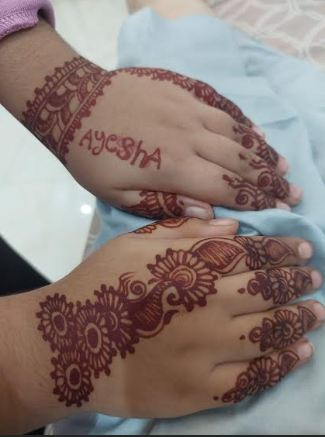By Nabeela Aslam
Child marriages are like polio for our social fabric, they cripple the future of our children, especially girls, perpetuate cycles of poverty and inequality, and require a collective effort to eradicate. There is a lot of hue and cry over a small number of polio cases in the entire country, yet no alarm bells ring when it comes to the widespread cases of child marriages, which cripple the social fabric far worse than polio ever could. According to UNICEF, Pakistan has the 6th highest rate of child marriage in the world, with far-reaching consequences for girls’ education, health, and economic empowerment. In every term—increasing cases of child abuse and violence, rising population that is engulfing all resources, and the escalating cost of healthcare services—child marriage remains a deeply rooted issue that amplifies each of these crises, yet continues to be met with silence and inaction.
Last April, the Lahore High Court ruled that the Child Marriage Act of 1929 was discriminatory due to its different age requirements for males and females, setting the minimum age at 18 for boys and 16 for girls. Justice Shahid Karim directed the Punjab government to revise the law within 15 days to end this age-based distinction. However, it’s been over a year, and the government hasn’t implemented the court’s verdict yet. The court’s decision aimed to protect girls from child marriages and exploitation, emphasizing equal rights under Article 25 of the Constitution.
Pakistan has a significant problem with child marriages, with 18% of women aged 20-24 in Punjab married before turning 18, according to the Pakistan Demographic Health Survey 2017-18. The economic cost of child marriage in Pakistan is estimated to be around 4.5% of GDP annually, underscoring the need for urgent action.
MPA Sarah Ahmad has indeed spearheaded the Punjab Child Marriage Restraint Bill 2024, which aims to raise the minimum age of marriage for girls from 16 to 18 years. This bill is a significant step towards preventing child marriages and protecting girls’ rights in Punjab.
Chief Executive Officer of PODA, Ms. Sameena Nazir, briefed that under the project “Reducing Early Marriages to Enhance Gender Equality,” PODA has been conducting meetings with women Members of the Provincial Assembly (MPAs) and community leaders. They’re advocating for a legal amendment to raise the minimum age of marriage for girls to 18 years, highlighting the negative impacts of child marriages on girls’ health, education, and well-being, she added.
PODA, an organization advocating for women’s and vulnerable communities’ rights in Pakistan, collaborates with various stakeholders, including legislators, community leaders, legal professionals, media, religious scholars, and health workers, to combat child marriages and secure girls’ fundamental rights, particularly the right to education, for social and economic empowerment.
“In our interactions with rural communities, we discovered alarming statistics: in a group of 30 women, 6 to 7 had been married before turning 18, and 3 to 4 before turning 16. This indicates a higher rate than reported by national and international organizations. Child marriage robs a significant portion of the population of their aspirations and dreams to lead a healthy, dignified life as full-fledged citizens, contrary to the constitutional guarantee of equality irrespective of age, race, sex, and ethnicity,” Ms. Nazir said.
Pakistan’s inconsistent marriage laws, with only Sindh and ICT for Christians setting the minimum age at 18, contradict the country’s commitment to Sustainable Development Goals (SDGs), particularly Goal 5 on gender equality, underscoring the need for uniform legislation to protect children’s rights and promote gender equality nationwide. The National Assembly of Pakistan passed a unanimous resolution adopting the SDGs Agenda as its own national development agenda through a resolution in 2016. This commitment underscores Pakistan’s dedication to achieving the SDGs, including Goal 5 on gender equality, which is crucial for addressing issues like child marriage.
Advocate Khawaja Zahid Nasim, Chairperson of the Naheeda Mehboob Elahi Foundation, which works to provide free legal aid to victims of gender-based violence, said: “While the Sindh Child Marriage Restraint Act has been a step forward in curbing early marriages, its effectiveness is undermined by those who misuse the legal system. In contrast, the Punjab Child Marriage Restraint Act’s loopholes, particularly regarding spousal age requirements, have enabled manipulators from other provinces to pursue their vested interests in Punjab.”
Factors like climate change are indeed exacerbating existing vulnerabilities, such as increased poverty and safety concerns, which in turn contribute to a rise in child marriages. The devastating floods in Sindh have highlighted this issue, with a significant surge in cases often referred to as “monsoon brides.” This alarming trend underscores the urgent need for targeted interventions to protect girls’ rights in the face of climate-related disasters.

















